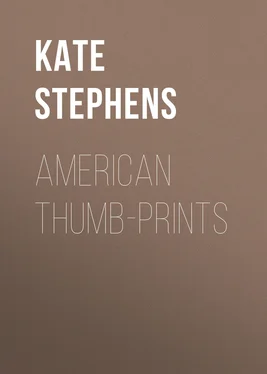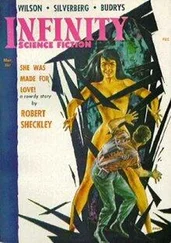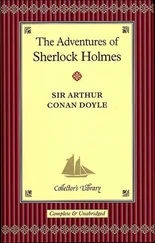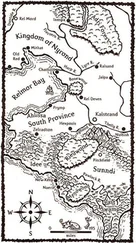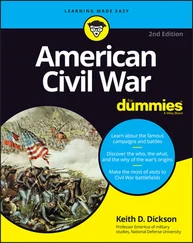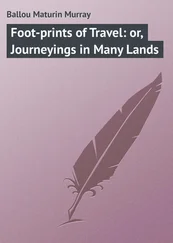Kate Stephens - American Thumb-prints
Здесь есть возможность читать онлайн «Kate Stephens - American Thumb-prints» — ознакомительный отрывок электронной книги совершенно бесплатно, а после прочтения отрывка купить полную версию. В некоторых случаях можно слушать аудио, скачать через торрент в формате fb2 и присутствует краткое содержание. Жанр: foreign_prose, foreign_antique, на английском языке. Описание произведения, (предисловие) а так же отзывы посетителей доступны на портале библиотеки ЛибКат.
- Название:American Thumb-prints
- Автор:
- Жанр:
- Год:неизвестен
- ISBN:нет данных
- Рейтинг книги:3 / 5. Голосов: 1
-
Избранное:Добавить в избранное
- Отзывы:
-
Ваша оценка:
- 60
- 1
- 2
- 3
- 4
- 5
American Thumb-prints: краткое содержание, описание и аннотация
Предлагаем к чтению аннотацию, описание, краткое содержание или предисловие (зависит от того, что написал сам автор книги «American Thumb-prints»). Если вы не нашли необходимую информацию о книге — напишите в комментариях, мы постараемся отыскать её.
American Thumb-prints — читать онлайн ознакомительный отрывок
Ниже представлен текст книги, разбитый по страницам. Система сохранения места последней прочитанной страницы, позволяет с удобством читать онлайн бесплатно книгу «American Thumb-prints», без необходимости каждый раз заново искать на чём Вы остановились. Поставьте закладку, и сможете в любой момент перейти на страницу, на которой закончили чтение.
Интервал:
Закладка:
A score of the names of these fore-workers for human liberty are known to us. But the names that are not known!—the pathos of it! that we cannot, looking below from our rung in the ladder, tell the countless who have striven, and fallen striving, that we are here because they were there, and that to them, often unrecognized and unthanked, our opportunities are due. They foreran their times, and their struggle made ours possible.
“’Tis not what man Does which exalts him, but what man Would do!”
But the immediate thought or impulse to make our Western State institutions co-educational, to give to the daughters the collegiate leisure and learning of the sons—to whom or to what shall we trace this idea! They used to explain it in Hesperus by telling you, “The people about us are for the most part New Englanders in blood, you know, perhaps not one, certainly not more than two generations removed to more genial lands, and still retaining the rigor and tenacity and devotion to principle of that stock.” But one naturally answered this by saying, “In New England they did not in the fifties and sixties give their daughters the educational opportunities they gave their sons. In those decades there were attempts at women’s colleges outside New England, but none in the neighborhood of Williams, Dartmouth, Amherst, Harvard, or Yale.”
The better reason is the historic—noted in every movement of our Aryan race. In this is found what New England civilization has done, not in Hesperus alone, but in Wisconsin, in California, in Minnesota, and wherever else it has united with other forces, and lost the self-consciousness and self-complacency which in our generation are distinguishing and abiding traits upon its own granitic soil. Prejudices which eat energy and dwarf activity colonists have commonly left behind, whether they have entered the swift black ship of the sea or the canvas-covered wagon of the prairie. This was said of those who sailed westward and built up ancient Syracuse some twenty-six centuries agone, and it is true also of the colonists of these later days.
The drawing up of the charter of the University of Hesperus shows how humanly, simply, and freely State building may be done. Judge Chadwick, of Laurel Town, gives the candid narrative:
“In the spring of 1864 the Misses Chapin and Miss Elizabeth Watson, who had established a school here, and who were anxious that the University should be organized, besought Governor Robinson to see that it was done. He, or they (or perhaps but one of them), came to me and insisted that I should go to the capital and secure the passage of an act organizing the University. The session of the Legislature was near its close. I went to the capital. In the State library I hunted up the various charters of similar institutions, and taking the Michigan University charter for my guide, drafted the act to organize the University of the State.... Judge Emery was the member of the House.... I do not remember who was the Senator.... I gave the draft to Judge Emery, who introduced it into the house, and by suspension of the rules got it through. It went through the Senate in the same way, and was approved by the governor—Carney.”
But the seed of fire from which this University sprang in the days when men were fighting for unity, for an idea—this you cannot understand without a word about the brilliant essence that enwraps you in that land—Hesperus air and light. This ether no man can describe. It is as clear as a diamond of finest quality, and each infinitesimal particle has a thousand radiant facets. You think to take it in your hand. It is as intangible as a perfume, as illusive as the hopes of man’s ultimate perfection. The colors of liquid rose are hidden in it and the glow of gold, and it gives flame to the dullest matter. It glances upon a gray tree-trunk, and the trunk glitters in purple and silver-white. It is so limpid and dry that a hill or a bush, or a grazing sheep far away, stands out in clear relief. It vitalizes. It whispers of the infinite life of life. Like the sea, it presses upon you a consciousness of illimitability and immeasurable strength. It is “most pellucid air,” like that in which the chorus of the “Medea” says the Athenians were “ever delicately marching.”
It is as like the atmosphere of Italy as the sturdy peach-blossoms which redden Hesperus boughs in March are like the softer almond-flowers. The same indescribable grace and radiance are in both essences. But there are the Hesperus blizzards—vast rivers of icy air which sweep from upper currents and ensphere the softness and translucent loveliness of the earth with such frosts as are said to fill all heaven between the stars.
Under such dynamic skies young men and women have been gathering now these forty years—before the September equinox has fairly quenched the glow of summer heat. During a long æstivation a sun burning in an almost cloudless heaven has beaten upon them day by day. The glow has purified and expanded their skin, has loosened their joints, and clothed them in the supple body of the south. Through the darkness of the night ten thousand stars have shone above their slumbers, and wind voices out of space have phu-phy-phis-pered through secretive pines and rolled tz-tz-tz upon the leathery leaves of oaks. Such days and nights have been over them since the wild grape tossed its fragrant blossoms in damp ravines in the passion of May.
These students have come from all kinds of homes, from meagre town houses, from the plainest and most forlorn farm-houses, and from other houses laden and bursting with plenty—and plenty in Hesperus is always more plenty than plenty anywhere else. Many of these young people have been nurtured delicately, but a large number have doubtless tasted the bitterness of overwork and the struggle of life before their teens.
Perhaps their parents came to Hesperus newly wedded, or in the early years of married life with a brood of little children. If their coming was not in the stridulous cars of some Pacific or Santa Fé railway, then it was over the hard-packed soil in most picturesque of pioneer fashions—a huge canvas-covered wagon carrying the family cook-stove, beds, and apparel, and, under its creaking sides, kettles for boilers, pails for fetching water from the nearest run, and axes to cut wood for evening fires. Every article the family carried must answer some requirement or use. The horses, too, have their appointed tasks, for, the journey once accomplished, they will mark off the eighty acres the family are going to pre-empt, and afterwards pull the plough through the heavy malarious sod.
On the seat of the wagon the wife and mother, wrapped in extremes of cold in a patchwork quilt, at times nursed the baby, and in any case drove with a workmanlike hand. John Goodman was sometimes back with the collie, snapping his blacksnake at the cattle and urging them on. But oftenest father and mother were up in the seat, and boy and girl trooping behind in barefooted and bareheaded innocence, enjoying happy equality and that intimate contact with the cows which milky udders invite.
Now this, or some way like this, was the introduction of a quota of Hesperus men and women to their fat earth and electric atmosphere. It is therefore not to be wondered at that these young people come to their University with little of the glamour nourished by delicate environment and the graces of life. Their earliest years have been spent upon the bed-rock of nature wrestling with the hardest facts and barest realities. They have suffered the deprivations and the unutterable trials of patience and faith which the world over are the lot of pioneers; and they have had the returns of their courage. Every self-respecting man and boy has been, perhaps still is, expected to do the work of two men. Every woman and girl to whom the god of circumstance had not been kind must be ready to perform, alike and equally well, the duties of man or woman—whichever the hour dictated. “Hesperus,” says an unblushing old adage of the fifties—“Hesperus is heaven to men and dogs and hell to women and horses.”
Читать дальшеИнтервал:
Закладка:
Похожие книги на «American Thumb-prints»
Представляем Вашему вниманию похожие книги на «American Thumb-prints» списком для выбора. Мы отобрали схожую по названию и смыслу литературу в надежде предоставить читателям больше вариантов отыскать новые, интересные, ещё непрочитанные произведения.
Обсуждение, отзывы о книге «American Thumb-prints» и просто собственные мнения читателей. Оставьте ваши комментарии, напишите, что Вы думаете о произведении, его смысле или главных героях. Укажите что конкретно понравилось, а что нет, и почему Вы так считаете.
